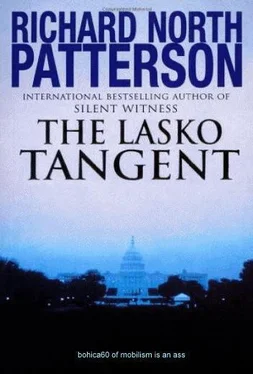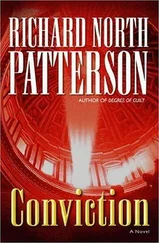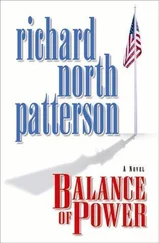Richard Patterson - The Lasko Tangent
Здесь есть возможность читать онлайн «Richard Patterson - The Lasko Tangent» весь текст электронной книги совершенно бесплатно (целиком полную версию без сокращений). В некоторых случаях можно слушать аудио, скачать через торрент в формате fb2 и присутствует краткое содержание. Жанр: Криминальный детектив, на английском языке. Описание произведения, (предисловие) а так же отзывы посетителей доступны на портале библиотеки ЛибКат.
- Название:The Lasko Tangent
- Автор:
- Жанр:
- Год:неизвестен
- ISBN:нет данных
- Рейтинг книги:3 / 5. Голосов: 1
-
Избранное:Добавить в избранное
- Отзывы:
-
Ваша оценка:
- 60
- 1
- 2
- 3
- 4
- 5
The Lasko Tangent: краткое содержание, описание и аннотация
Предлагаем к чтению аннотацию, описание, краткое содержание или предисловие (зависит от того, что написал сам автор книги «The Lasko Tangent»). Если вы не нашли необходимую информацию о книге — напишите в комментариях, мы постараемся отыскать её.
The Lasko Tangent — читать онлайн бесплатно полную книгу (весь текст) целиком
Ниже представлен текст книги, разбитый по страницам. Система сохранения места последней прочитанной страницы, позволяет с удобством читать онлайн бесплатно книгу «The Lasko Tangent», без необходимости каждый раз заново искать на чём Вы остановились. Поставьте закладку, и сможете в любой момент перейти на страницу, на которой закончили чтение.
Интервал:
Закладка:
“Then the question you should ask is why he put you on this one in the first place. Anyone else would have been less trouble.”
It was as if he had sniffed out my suspicions and was conducting a veiled debate. With me and with himself. I wanted to tell him about McGuire and Lasko’s lawyer. And about the memo. But that would put Robinson in the middle, between McGuire and me. He didn’t want to be there.
“I’ll think on it, Jim. And I appreciate your help.” I felt as if I were closing out his friendship, selling him short. But he didn’t need my problems, and I couldn’t make him hold out on McGuire. I let him go.
I got up and closed the door after him. Then I pulled the manila envelope out of the attache case. Lehman’s memo. I fingered it, wondering if the absurd scrawling could somehow kill me too. I stared for a long time. Then I opened up my desk drawer and looked in. The bottom of the drawer was two layers of metal. I took my letter opener, jammed it between the layers at the front of the drawer and pried. It lifted minutely, making a crack between the two layers. I pulled it back out, and took the memo out of the envelope. I copied the cryptic words on a note pad, ripped it off, and stuffed it in my wallet. I replaced the memo in its envelope. Then I re-pried the layers with the opener. I took the envelope in my left hand and tried to slide it between the layers. It fit. I slowly shoved it all the way in.
I thought for a while. It was a turning point, I knew. I could hide it, or give it up and try to walk away. But I had probably come too far the first time I read it. I closed the drawer and locked it.
I leaned back in my chair and waited for William Lasko.
Fourteen
I picked up Robinson about 3:20 and went to the conference room. It was done in bargain chic: a cheap wooden table and Swedish modern chairs, covered in yellow, maximum life three years. There were glass windows on two sides, covered by cheap orange burlap curtains. A green plastic schefflera, in a pot, completed the room.
We sat in the disposable chairs, joking uneasily about the decor and waiting because Lasko had the suck to make us wait and knew it. Robinson’s bemused look had turned glum. My defensiveness was mixed with fear; I thought I was meeting Lehman’s murderer, the man behind the quiet voice on my telephone, the author of the memo hidden in my desk. It was a new experience. I gazed absently at the curtain, trying to rehearse my plan.
I looked at my watch. It was 3:40. Lasko was making a point. It was effective. Each second measured itself out, separately. Robinson’s forefinger made invisible grooves on his notepad. I caught myself tapping the table with my pen, Gene Krupa style.
The phone rang. The downstairs guard told me that Lasko had arrived, with his lawyer. I said to send them up to the conference room, third floor. We waited. Then the door cracked open.
Lasko’s pictures hadn’t prepared me. He filled the doorway, at least six-four, two-thirty, and giving a sudden impact of darkness and controlled force. He entered and strode around the conference table, smiling broadly, with the air of a man securing a beachhead. He got close, where he could look down at me, and administered a bone-crunching handshake.
“I’m William Lasko.” His eyes riveted mine, gauging my reaction.
I tried not to have any. “How are you, Mr. Lasko. I’m Christopher Paget.”
He stared a second longer, then turned to Robinson, repeating the ritual. He had a Southwestern look: high color, fleshy face, and black eyes, hard and intelligent. I gestured at the table. Lasko appropriated a chair with a decisive grasp and sat down. He had a kind of self-conscious presence, as if he were watching himself in the mirror, approvingly. It was oddly impressive. I felt puny, aware of my unimportance.
It was then that I noticed Catlow. He was standing in the background, the perfect self-effacing counselor. The contrast with Lasko was striking. Catlow was slight, sandy-haired, and sallow as a Dead Sea scroll. He introduced himself in a dry, thin voice and parceled out a fleeting handshake. His liveliest feature was the sharp, careful grey eyes. Unobtrusiveness was Catlow’s business. I looked back at Lasko. He was black-haired, with a blunt nose and a thick full mouth. Obscurity wouldn’t suit him.
We all sat, Robinson to my right, the other two to my left. Lasko leaned over the table, as if it were something he had bought. They stared at me, waiting as I considered how to start.
The phone rang. I picked it up. An overseas operator rasped at me, asking for Lasko. I handed it to him. His baritone voice was rich with satisfaction. “I’ve got some acquisitions in the fire. I can’t get away-people always needing to talk.” He spoke into the phone. “Leo. Where are you? Japan? What the hell time is it over there? Yes, I’m with the ECC. What’s up?” Lasko was conducting both sides of the conversation, for my benefit. I wondered how poor Leo liked getting up at midnight to call the boss.
Lasko kept talking to Leo, watching me. I watched back to keep him happy. “Yeah, OK. Thirty-five a ton? That’s a holdup.” His eyes followed me jealously, demanding my attention. “Listen, Leo, that’s bullshit. You ask that Jap where else he’s going to get coal like that for his crappy little island. Then take a walk. In two weeks he’ll be crawling.” I got the message: Lasko was a very important man. That was his way of relating to people. What was important was to be important. Lasko needed importance like a junkie needs smack. And Lehman had somehow threatened the supply.
Lasko finally rang off. I looked at him, waiting him out. He finally spoke. “Well, Mr. Paget, what’s on your mind?” His voice had a pushy heartiness, to prod me back in line. Catlow sat, hands on the table, completely still.
I answered politely. “I was thinking, Mr. Lasko, that you might throw out some suggestions as to what we can accomplish here.”
Lasko answered smoothly. “All right. I think we should let our hair down. I’m being practical. Your investigation is bad for my company.” He spread his hands in a gesture of openness. “Ask me anything you want. I’ll answer all your questions until you’re satisfied that you’ve got absolutely nothing to worry about.” The amiable words were surface amenities; the speech was imperious. Lasko figured he owned me, like Lehman. His contempt was as palpable as the August heat.
I made myself smile. “I appreciate that.” I fished around for what was strange in the meeting. Then it hit me. No one had mentioned Alec Lehman.
I spoke diffidently. “Ready to go?”
Lasko smiled back, opening his hands again. “Ready.”
I spoke very slowly. “Did you kill Alexander Lehman?”
Each word dropped like a stone. Catlow’s eyes widened, almost imperceptibly. His right hand fluttered. The smile lingered on Lasko’s face a second after his brain tried to erase it. Then his features set in a cast as primitive as I had ever seen, the primal face of a predator. It was my answer. His formal response was an anticlimax, delivered in a monotone selected to be meaningless.
“No.”
“That’s a relief.” I turned to Robinson. “Do you have anything else for Mr. Lasko?”
Robinson stared at me, then shook his head solemnly.
Catlow cut in. The strain showed in his parched voice. “Surely you must have more questions. Mr. Lasko has made himself available, at considerable trouble, in the middle of three acquisitions. You should do a better job than this.”
McGuire just couldn’t get good help anymore. I waved Catlow’s words away and turned to Lasko. “Consider yourself cleared, Mr. Lasko. Can I see you out?”
Lasko’s baritone carried an icy tremor. “Mr. Paget, you’re making a serious mistake.” Condescension cut him to where he lived, pushed him to ultimates. His face said the rest-that I was making Lehman’s mistake.
Читать дальшеИнтервал:
Закладка:
Похожие книги на «The Lasko Tangent»
Представляем Вашему вниманию похожие книги на «The Lasko Tangent» списком для выбора. Мы отобрали схожую по названию и смыслу литературу в надежде предоставить читателям больше вариантов отыскать новые, интересные, ещё непрочитанные произведения.
Обсуждение, отзывы о книге «The Lasko Tangent» и просто собственные мнения читателей. Оставьте ваши комментарии, напишите, что Вы думаете о произведении, его смысле или главных героях. Укажите что конкретно понравилось, а что нет, и почему Вы так считаете.












